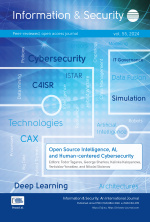The Case for Advanced Distributed Learning
Source:
Information & Security: An International Journal,Keywords:
cost effectiveness, distributed learning, learning objects, SCORM, sharable content objects, training effectivenessAbstract:
The Advanced Distributed Learning (ADL) initiative represents a global effort to accelerate large-scale development of dynamic and cost-effective learning environments. The brief history of ADL is described, its current status if reviewed, and its future are considered in this paper. The goal of the ADL initiative is to ensure access to high quality education and training, tailored to individual needs, developed and delivered cost-effectively, available anytime and anywhere. This goal is viewed as something that can be achieved affordably, and thereby made feasible, only through the use of technology – specifically computer technology. ADL is establi-shing a common technical framework for computer and Web-based learning, called the SCORM (Sharable Content Object Reference Model). The application of SCORM fosters the creation of reusable learning content as “instructional objects.” It also seeks to stimulate a vigorous global market for these products. ADL is preparing for a world where communications networks and personal delivery devices are pervasive and inexpensive, as well as transparent to the users in terms of ease of use, bandwidth and portability. Much current ADL effort is an attempt to understand how best to utilize the next generation technology infrastructure for learning anytime, anywhere, either within the SCORM model or with technologies that can converse with SCORM.
